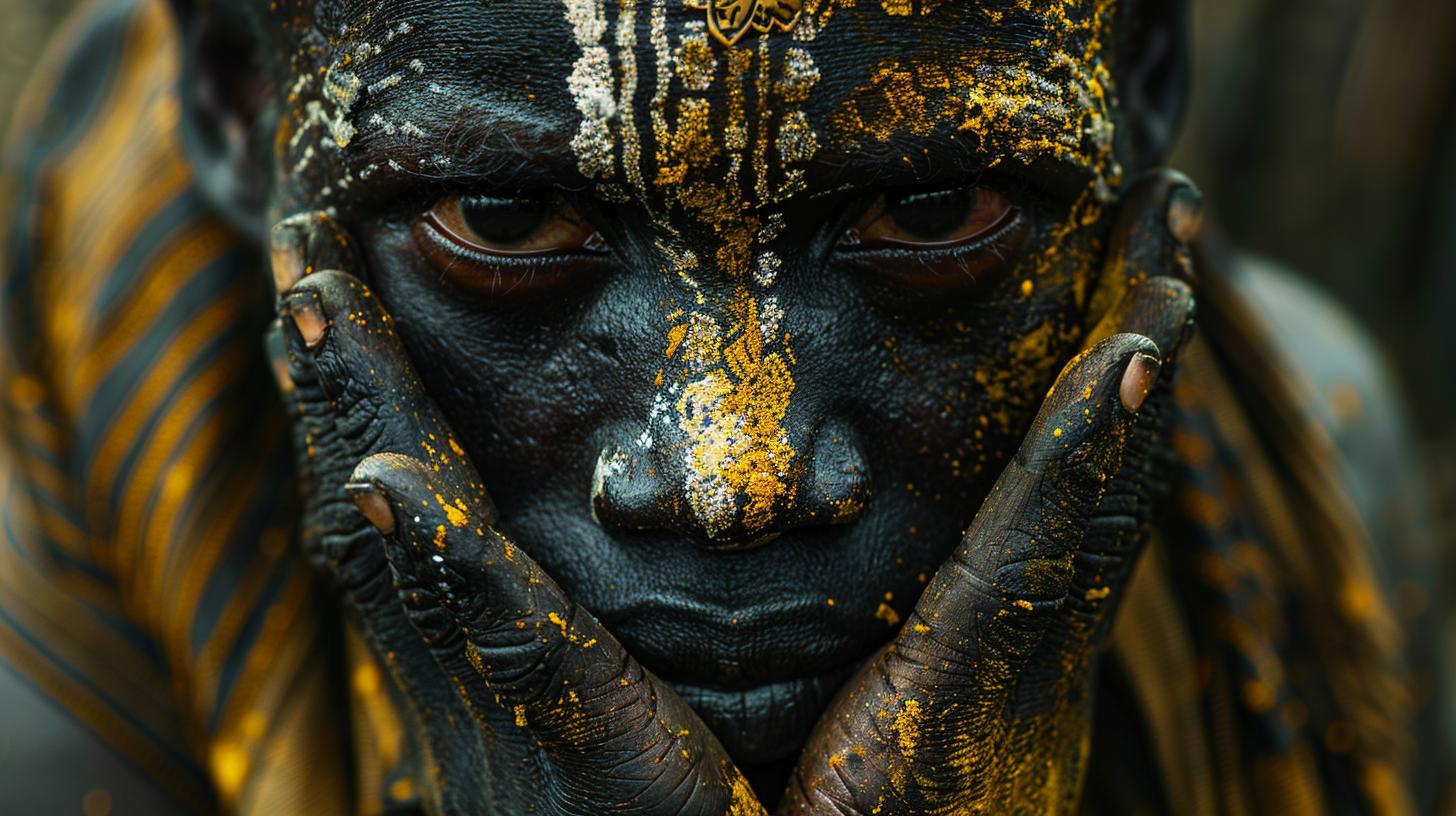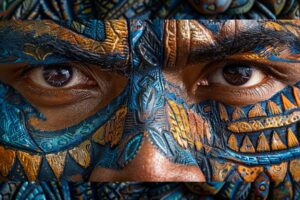Sakpata God: African Deity of Health and Disease

Sakpata is an important deity in African mythology, associated with health and disease. He is known as the god of smallpox and madness in various African cultures. Sakpata is believed to be the son of Yemaya and an Orisha, with the ability to inflict diseases like smallpox and madness.
In Vodun culture, Sakpata is revered as the god of physical, mental, and spiritual well-being, as well as the god of sickness. worshipped with rituals and offerings.
Overview of Sakpata god
Sakpata, a deity with origins in Yoruba tradition, is revered as a symbol of both disease and health.
In Trinidad Orisha tradition, Sakpata’s presence is deeply intertwined with the cultural and spiritual practices.
Origin of Sakpata in Yoruba tradition
Sakpata’s roots can be traced back to the rich Yoruba tradition, where his significance as a deity of health and disease was established and revered. He embodies a complex array of attributes and symbolism.
Sakpata as a deity of disease and health
Within the realm of African mythology, Sakpata holds a dual role as both a harbinger of sickness and a bestower of well-being. His influence extends beyond mere physical afflictions to encompass mental and spiritual aspects as well.
Sakpata in Trinidad Orisha tradition
In the Trinidad Orisha tradition, Sakpata’s presence is felt in the rituals, festivals, and cultural fabric of the community. His significance in this setting reflects a nuanced blend of African heritage and local influences.
Sakpata’s Attributes and Associations
Sakpata’s association with smallpox
Sakpata, in African mythology, is closely linked to the disease of smallpox, believed to have the power to inflict this illness upon individuals. He is feared within many cultures for his association with the contagious nature of smallpox, representing the destructive force of disease.
Other names and attributes of Sakpata
Aside from being known as the god of smallpox, Sakpata is also recognized by various other names and attributes across different African traditions. These names and attributes highlight different aspects of his character and power, reflecting the diverse interpretations of this deity.
Sakpata in Rituals and Festivals
Sakpata’s presence in rituals and festivals is deeply rooted in African traditions, showcasing the reverence and importance attributed to this deity.
Religious Rites and Rituals Dedicated to Sakpata
Within African communities, various religious rites and rituals are dedicated to honoring Sakpata, reflecting the belief in his power and influence over health and disease. These ceremonies are conducted with meticulous attention to detail and traditional practices, aiming to appease and connect with the deity.
- Cleansing ceremonies involving sacred herbs and incantations are performed to purify individuals and spaces, seeking Sakpata’s blessing and protection.
- Sacrificial offerings of animals, such as goats, are made to appease Sakpata and seek his favor in maintaining harmony within the community.
- Dance ceremonies characterized by rhythmic movements and drumming serve as a form of spiritual communication with Sakpata, believed to channel his divine energy and healing powers.
Festivals Honoring Sakpata
Special festivals dedicated to Sakpata are celebrated with great fervor and devotion, marking significant occasions in the religious calendar and reinforcing the bond between worshippers and the deity.
- The Festival of Smallpox, an annual event in some African regions, pays homage to Sakpata’s association with the disease and seeks his intervention for protection against its spread.
- During these festivals, intricate rituals and vibrant processions take place, showcasing colorful costumes and sacred symbols that symbolize Sakpata’s attributes and significance.
- Community gatherings and feasts are organized as part of the festivities, fostering unity and spiritual solidarity among believers in honor of Sakpata’s divine presence.
Influence of Sakpata in African Diaspora
Sakpata’s influence extends beyond Africa, reaching communities in New York and Trinidad.
In these diasporic settings, Sakpata’s presence is felt through rituals and festivals that honor his legacy.
Sakpata’s presence in New York and Trinidad
- Sakpata’s worship in New York reflects a blend of African traditions with local practices.
- In Trinidad, Sakpata’s role is intertwined with cultural expressions and spiritual beliefs.
Sakpata’s role in West African religion
In West African religion, Sakpata plays a crucial role as a deity of health and disease.
His presence in rituals and ceremonies underscores his significance in maintaining spiritual balance and well-being.
Modern Interpretations of Sakpata
Modern interpretations of Sakpata reflect a contemporary understanding and worship of this deity, highlighting his significance in today’s society.
Contemporary understanding and worship of Sakpata
- Adherents in various cultures continue to honor Sakpata through traditional rituals and ceremonies.
- Believers seek guidance and protection from Sakpata in times of illness and adversity.
- His worship has evolved to incorporate modern practices while preserving ancient traditions.
Sakpata’s significance in today’s society
- Sakpata symbolizes resilience and healing, offering comfort to those facing physical and mental challenges.
- His presence serves as a reminder of the interconnectedness between human beings and the natural world.
- Many individuals turn to Sakpata for strength and guidance in navigating life’s trials and tribulations.
.









